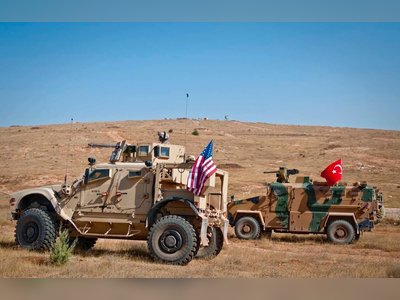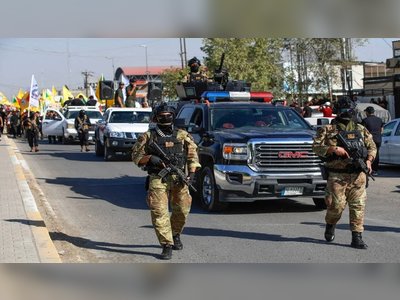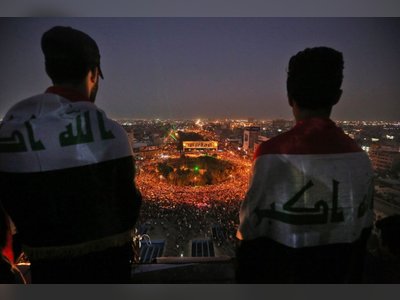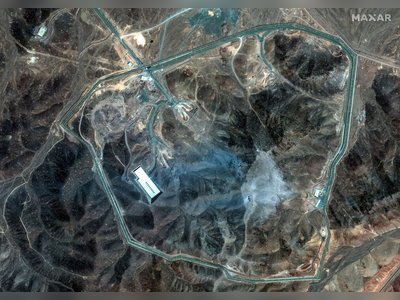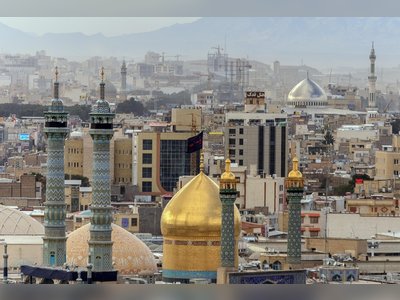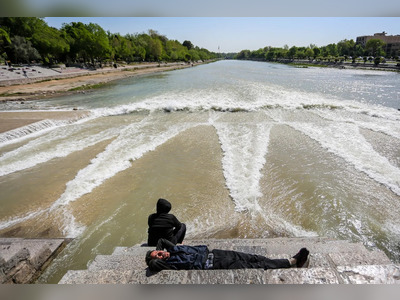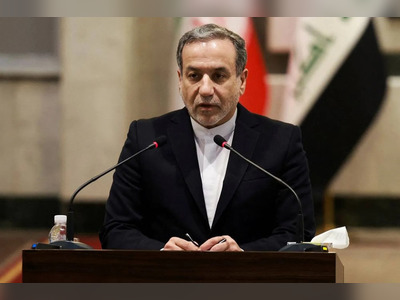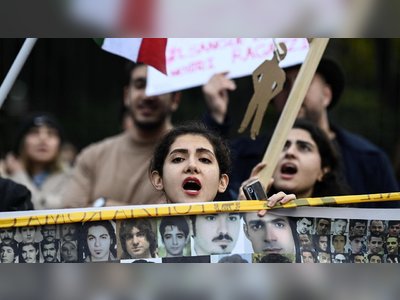
Israeli Settler Accused of Killing Palestinian Activist to be Released from House Arrest
Court ruling sparks criticism over handling of settler violence in occupied West Bank.
An Israeli court has ruled that an Israeli settler, Yinon Levi, accused of killing a prominent Palestinian activist during a confrontation in the occupied West Bank, will be released from house arrest.
The incident, captured on video by a Palestinian witness, shows Levi brandishing a pistol and engaging in a physical altercation with unarmed Palestinians.
While the video does not clearly show where the bullets hit, witnesses assert that one of the shots resulted in the death of Awdah Hathaleen, an English teacher and father of three who was uninvolved and standing nearby.The Israeli military is currently holding Hathaleen's body under the pretext of preventing public disorder.
The court decision, handed down by Judge Havi Toker, acknowledged that Levi did shoot his gun in the village on the day of the incident but concluded that he may have acted in self-defense.
However, the court could not definitively establish that Levi’s shots were responsible for Hathaleen's death.Levi has a history of alleged violence toward Palestinians and has been sanctioned by multiple Western countries.
Despite this, President Donald Trump lifted US sanctions on Levi and other radical settlers shortly after returning to office.
Critics argue that Palestinian victims are often viewed as suspects while Jewish suspects are perceived as victims, highlighting what they see as an unfair judicial approach.The incident occurred in Umm Al-Khair, a village featured in the Oscar-winning documentary 'No Other Land,' which explores settler violence and life under Israeli military rule.
Following the confrontation, 18 Palestinians from the village were arrested, with six remaining in detention.This case has drawn further scrutiny as it sheds light on the broader issue of settler violence in the occupied West Bank.
Anti-settlement activists accuse Israeli authorities of failing to adequately address these acts of violence, which have intensified alongside Palestinian attacks since the outbreak of conflict.
The case also centers around the contested rights and land ownership in the region.In response to the court's decision, 70 women from Umm Al-Khair initiated a hunger strike on Friday, demanding the return of Hathaleen’s body for burial in their village.
Israel’s military has stated that it will return the body if the family agrees to bury him in the nearest authorized cemetery.
Hathaleen was known for his activism against settler violence and had contributed to the Oscar-winning documentary.
His death has sparked international solidarity, with murals erected in Rome and vigils held in New York in his honor.
The incident, captured on video by a Palestinian witness, shows Levi brandishing a pistol and engaging in a physical altercation with unarmed Palestinians.
While the video does not clearly show where the bullets hit, witnesses assert that one of the shots resulted in the death of Awdah Hathaleen, an English teacher and father of three who was uninvolved and standing nearby.The Israeli military is currently holding Hathaleen's body under the pretext of preventing public disorder.
The court decision, handed down by Judge Havi Toker, acknowledged that Levi did shoot his gun in the village on the day of the incident but concluded that he may have acted in self-defense.
However, the court could not definitively establish that Levi’s shots were responsible for Hathaleen's death.Levi has a history of alleged violence toward Palestinians and has been sanctioned by multiple Western countries.
Despite this, President Donald Trump lifted US sanctions on Levi and other radical settlers shortly after returning to office.
Critics argue that Palestinian victims are often viewed as suspects while Jewish suspects are perceived as victims, highlighting what they see as an unfair judicial approach.The incident occurred in Umm Al-Khair, a village featured in the Oscar-winning documentary 'No Other Land,' which explores settler violence and life under Israeli military rule.
Following the confrontation, 18 Palestinians from the village were arrested, with six remaining in detention.This case has drawn further scrutiny as it sheds light on the broader issue of settler violence in the occupied West Bank.
Anti-settlement activists accuse Israeli authorities of failing to adequately address these acts of violence, which have intensified alongside Palestinian attacks since the outbreak of conflict.
The case also centers around the contested rights and land ownership in the region.In response to the court's decision, 70 women from Umm Al-Khair initiated a hunger strike on Friday, demanding the return of Hathaleen’s body for burial in their village.
Israel’s military has stated that it will return the body if the family agrees to bury him in the nearest authorized cemetery.
Hathaleen was known for his activism against settler violence and had contributed to the Oscar-winning documentary.
His death has sparked international solidarity, with murals erected in Rome and vigils held in New York in his honor.
